
Four years after placing a concrete mix made with ASTM C845 expansive hydraulic cement, West Virginia adds Type K shrinkage-compensating concrete made with Komponent® expansive cement additive to its bridge deck specification.
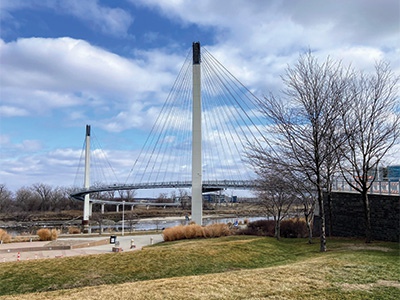
More stringent performance requirements combined with changes in type, quality, and availability of concreting materials is inspiring innovation, creativity, and collaboration. It is also renewing interest in materials with established, proven performance that offer solutions to today’s challenges. One of those experiencing an inspiring renaissance is Type K cement.
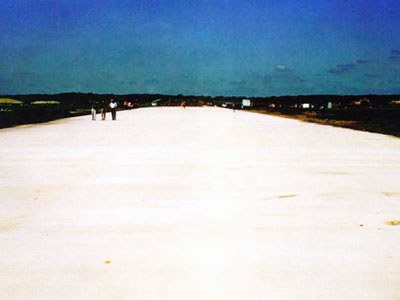
19 years after placement of three demonstration pavements, the post-tensioned design shows best performance. The post-tensioned pavement made with fibrous shrinkage compensating concrete using Type K cement is 75 feet wide, 1,200 feet long, and has no joints cut into it.
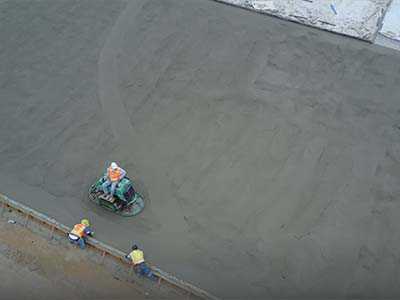
The slabs were placed in a new facility, two sections per day, at a size of 10,000 to 12,000 sq. ft. No control joints were used. The product used was Komponent.
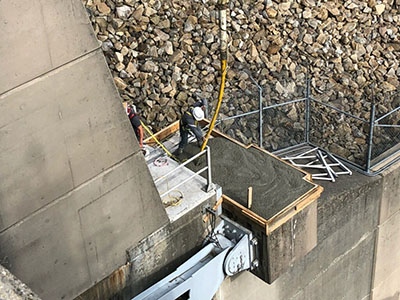
The U.S. Army Corps of Engineers replaces eight portland cement concrete caps with caps made with microfiber-reinforced shrinkage-compensating concrete that is expected to have twice the design life of the old ones. Products used were Komponent and System-K.
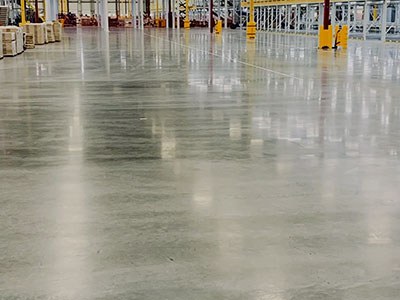
The global no-frills grocery store has built numerous warehouses using Type K concrete made with Komponent shrinkage-compensating cement additive. In this facility, using Komponent enabled joints to be extended to 110 ft. x 110 ft. (33.5m x 33.5m) to align with column spacing and maximize installation efficiencies.
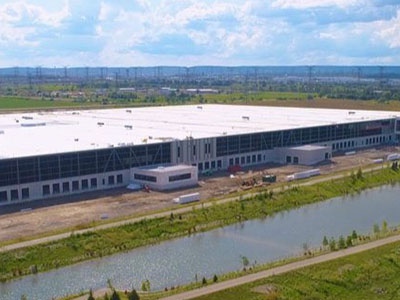
Extended joint spacing up to 165 ft. 6 in. (50.4m) in the main marshaling area and receiving areas were achieved using Type K shrinkage-compensating concrete with integral steel fiber reinforcement and Cosinus Slide armor joints.
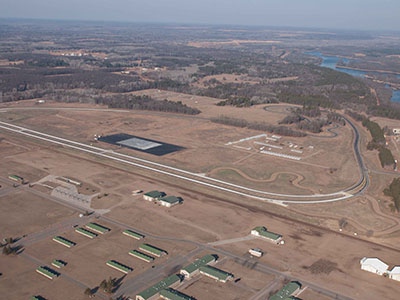
Engineering firms URS and Stantec received an Honor Award for their innovative way of designing pavement with minimal joints, no curling, no cracking, and no spalling. Komponent shrinkage-compensating concrete was used for the skid pad.
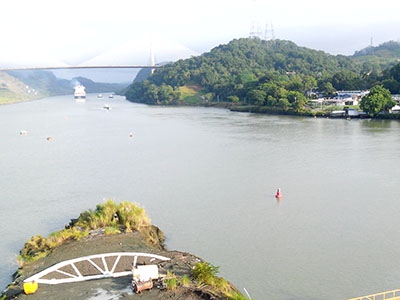
A non-shrink grout was required to secure the piles to avoid voids that might absorb water in the nail tubes and cause corrosion of the steel. Shrinkage-compensating Type K grout was specified to meet these needs and mixed in ready-mix trucks for the 366-ft.-by-50-ft. project area.
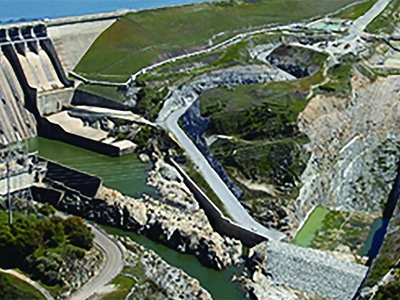
Six curved and submerged stainless steel gates are helping control water releases from a new spillway. A 7000-psi non-shrink grout made with Komponent shrinkage-compensating cement additive is ensuring a durable, watertight seal.
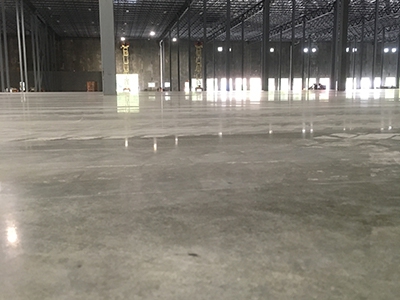
S+S Concrete Floors worked with Redi-Mix Companies and our Komponent team to develop a shrinkage-compensating Type K concrete mix design that would allow placement of 40,000-sq.-ft. slabs without a single control joint. With forklifts getting heavier, the project owner will benefit via lower maintenance repair costs.
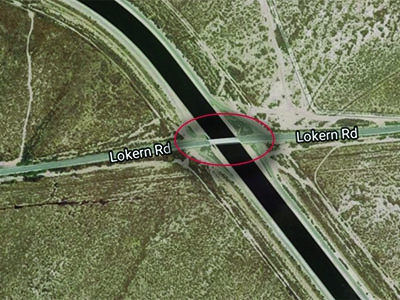
Drying shrinkage that followed the rebar on a bridge deck between two state highways caused a large hole to form. An overlay made with Komponent shrinkage-compensating concrete is protecting the newly reinforced deck from the overloaded trucks that regularly access it.

Toyota's Facilities Project Manager noted, "We felt that we optimized the value of the dollars we spent on our warehouse" using Type K Shrinkage-Compensating Concrete. Upon evaluation of savings in concrete maintenance alone, the facilities team reported an annual savings of over $10,000 using Type K Shrinkage-Compensating Concrete when compared to their other parts-warehousing locations.
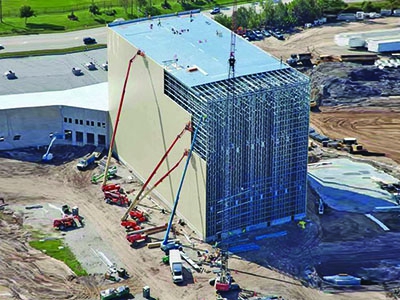
The outcome of using the shrinkage-compensating cement was a 102x206-ft. crack-free slab with a dense and durable surface. Product used was Komponent.
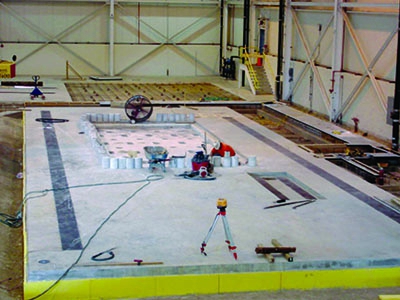
Precision is a must, not an option, on the manufacturer's military aviation production line. To provide the monolithic, super-flat floor slab required to install and operate a large and heavy friction stir welder, 15% of the portland cement in the concrete mix design was replaced with Komponent shrinkage-compensating cement additive.